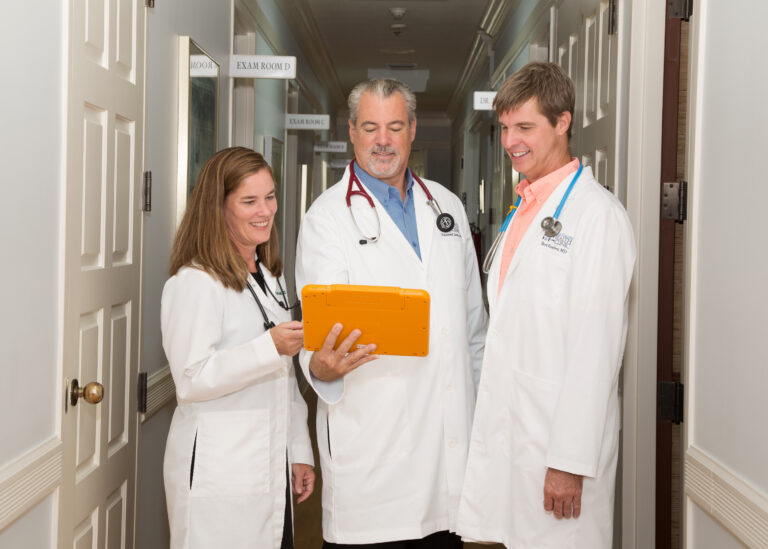
Getting Back to Medical Normal

It was brought to my attention that March is National Colorectal Cancer Awareness Month, not to be confused with National Lung Cancer, Breast Cancer, Prostate Cancer, or any other cancer awareness month. As a practitioner and student of Cancer Medicine for the last 40 years, every month has been Any Cancer Awareness Month. Therefore, I was not caught off guard by this news. In the midst of (not the end of) the pandemic, renewed awareness of the illnesses not called COVID-19 is worthy of comment.
Repeatedly in the press and medical journals, we have been reminded of the shift away from routine medical care. Cancer prevention is an example of this shift in our behavior. By one estimate, the number of scheduled screening procedures for average risk colorectal cancer (CRC) dropped by 80 percent in March and April 2020. While this drop is gradually reversing itself, the effect of the decrease in scheduled screening will translate into an increase in the number of advanced CRC that will be diagnosed at some time in the next 10 years. To avoid this increased risk of advanced illness, we should try to get back to the medical normal as soon as we can.
Screening tests for colon cancer will save lives
The impact of early detection of CRC is a 30 percent reduction in CRC mortality in the screened population. The return to regularly scheduled cancer screening, as well as screening for other medical diseases is of Importance to us all. As soon as it is safe to do so, regular screening for preventable and treatable diseases should be a priority for all adults and children.
Screening recommendations for CRC have recently been modified by some medical organizations. Both the American Society of Gastroenterology and the American Cancer Society now recommend CRC screening for average risks persons to begin at age 45. This change from age 50 results from the identified increase in incidence of CRC in adults under the age of 50. It is estimated that compared to the population born in 1950 or before, the population born in 1990 or later will assume a two-fold increased risk of colon cancer and a four-fold increased risk of rectal cancer with much of this increase occurring at early age, often before 50. This trend appears to be driven by the changes in modern western lifestyle, and the increased prevalence in obesity for our younger population.
The approach to CRC screening includes both a review of factors known to increase CRC risk and a plan for an effective screening program. You are considered of average risk if you are age 45 to 75, and DO NOT HAVE:
- A personal history for CRC or certain types of advanced polyps.
- A first degree family history (father, mother, sibling, child) of CRC or other cancers associated with inherited familial cancer syndromes such as LYNCH, HNPCC, or FAP.
- A personal history of inflammatory bowel disease, such as Ulcerative Colitis or possibly Crohn’s Disease.
- A personal history of systemic immunosuppression or abdominal/pelvic irradiation for previously treated malignancy.
The appropriate screening program depends on the assessment of your risk of developing CRC and the time interval between screening tests.
While complete colonoscopy is the best screening tool, alternatives exist but require full discussion with your physician. Factors such as age, concurrent illness and personal preference may guide the choice of testing but must be considered carefully. Tests such as virtual colonoscopy, barium enema, ColoGuard DNA testing every three years, or yearly FIT (fecal immunochemical testing) exist, but all must be confirmed by colonoscopy if positive.
The frequency of screening for CRC must also be individualized. For average risk persons, colonoscopy with normal colon and rectal findings should be repeated every 10 years. Patients with a positive family history as outlined previously or a personal history of advanced polyposis will require more frequent colonoscopy screening, usually at five years. More frequent colonoscopy may be recommended in certain very high-risk circumstances. Screening frequency for alternative tests must be discussed individually as there are no established standards.
The way back to normal will include taking care of your health
Vaccination for COVID-19 and maintaining responsible social behavior will assist us all in making this a safe and useful effort. If you think wearing a mask and distancing is tough, changing your lifestyle to reduce the risk of CRC is not trivial. The three ways you can reduce your CRC risk are to eat a diet low in fats and red meat and high in fruits, veggies and fiber, avoid tobacco altogether and alcohol in excess, and get regular physical activity while maintaining a normal weight during your lifetime. So, get to work. Wear the mask, walk briskly away from food and everyone else, and limit the cocktail parties to a dull roar. Let’s get back to normal soon.
Be well,
Thomas J. Ervin, M.D.
More Recent Healthcare News

April, the birth month of James Parkinson, is Parkinson’s Disease Awareness Month. Parkinson’s is a degenerative syndrome that results in the gradual loss of brain circuitry involved in movement, thinking and behavior. According to the National Institutes of Health (NIH), the first clear medical description of Parkinson’s Disease as a neurological condition was written in […]

March 30th marks a special day on our calendar – Doctor’s Day! It’s a time to honor those who dedicate their lives to caring for us. At the Boca Grande Health Clinic, it’s the extraordinary team of board-certified physicians – Dr. Raymond A. James, our Medical Director; Dr. Bret Kueber, the Assistant Medical Director; and […]

Ask a Doc: Kicking Colon Cancer in the Butt
March 22, 2024According to the American Cancer Society, the lifetime risk of developing colorectal cancer is about 1 in 23 for men and 1 in 25 for women. The death rate from colorectal cancer has been dropping in older adults for several decades. Unfortunately, colorectal cancers now rank as the leading cause of cancer death in men […]

What’s on Your Plate? Tips to boost your nutrition
March 8, 2024March is the harbinger of spring and with it, the start of daylight saving time – an extra hour for healthy activities from taking in the great outdoors to growing a garden. It’s also National Nutrition Month, a time to focus on making informed food choices and developing sound eating habits. With lifestyle-related diseases like […]

